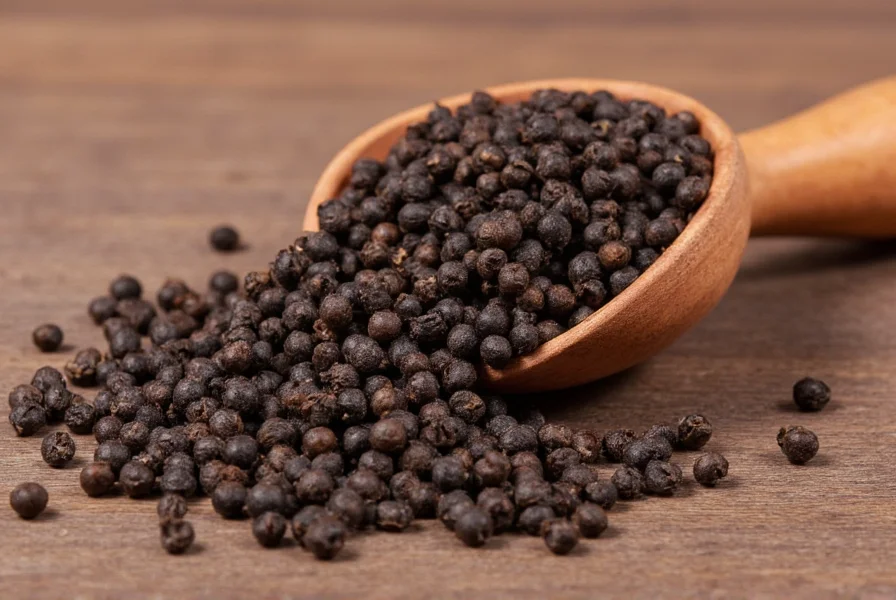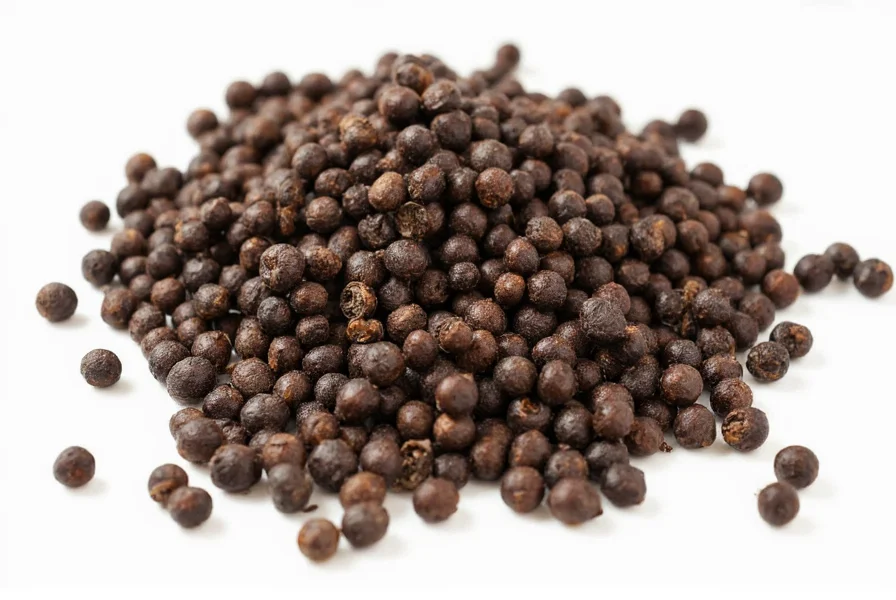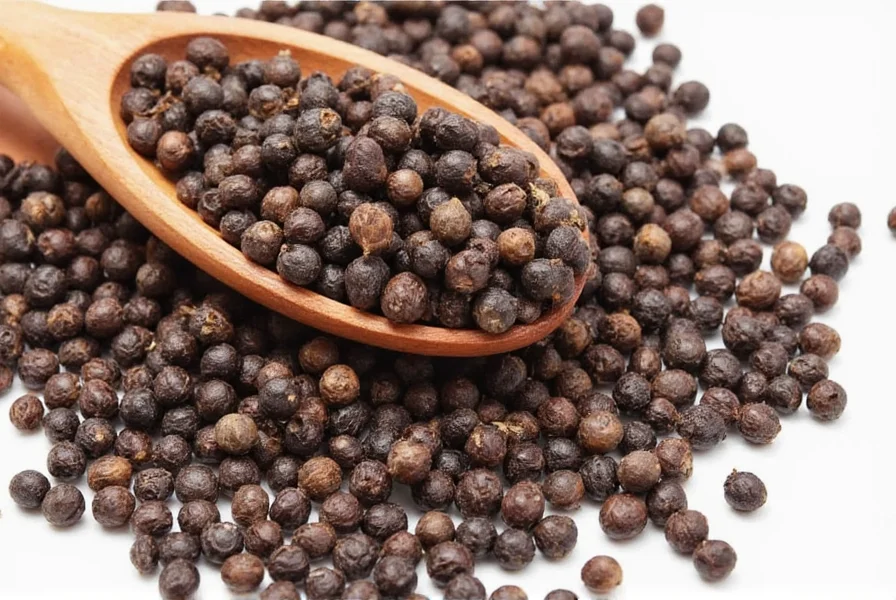For centuries, black pepper has earned the nickname “King of Spices” for good reason. This versatile seasoning does far more than simply add heat to dishes—it enhances flavor profiles, boosts nutritional value, and offers scientifically supported health advantages. Understanding what makes black pepper unique helps home cooks and health-conscious consumers maximize its potential in daily life.
The Science Behind Black Pepper’s Power
At the heart of black pepper’s distinctive properties lies piperine, its primary active compound. This alkaloid constitutes approximately 4-5% of black pepper by weight and delivers multiple benefits:
| Compound | Concentration | Primary Function |
|---|---|---|
| Piperine | 4-5% | Enhances nutrient absorption, provides antioxidant properties |
| Volatile Oils | 1-3% | Contributes to aroma and flavor complexity |
| Dietary Fiber | 25-30% | Supports digestive health |
Research shows piperine increases the bioavailability of various nutrients and compounds by up to 2,000%. This explains why nutrition experts recommend pairing black pepper with turmeric—the piperine dramatically improves curcumin absorption. The same mechanism applies to other nutrients including selenium, beta-carotene, and certain B vitamins.

Historical Journey of Black Pepper
Black pepper cultivation began in Kerala, India over 4,000 years ago. Ancient traders guarded the “Spice Route” connecting India to Europe, making pepper so valuable it was sometimes used as currency. Roman historian Pliny the Elder documented pepper’s exorbitant cost in first-century Rome, where it fetched 15 times the price of grain.
During the Middle Ages, pepper became a status symbol among European nobility. Wealthy households kept pepper in locked chests, and merchants formed powerful guilds controlling its trade. The quest for direct access to pepper and other spices ultimately fueled the Age of Exploration, leading to the discovery of new sea routes and eventually the Americas.
From Vine to Table: Black Pepper Production
Unlike common misconception, black pepper doesn’t come from a bush but from Piper nigrum, a perennial climbing vine. Here’s how producers transform the vine’s fruit into the familiar spice:
- Harvesting: Workers pick nearly ripe green berries
- Processing: Berries undergo brief boiling or steaming
- Drying: Sun-dried for 3-7 days, turning dark brown/black
- Sorting: Graded by size, color, and quality
The drying process triggers enzymatic reactions that develop piperine and create black pepper’s characteristic flavor. White pepper undergoes additional processing where the outer layer is removed after soaking, resulting in a milder taste profile. Green and red peppercorns represent different harvest stages with unique flavor characteristics.
Culinary Applications and Pairing Principles
Chefs worldwide rely on black pepper for more than just heat. Its complex flavor profile includes earthy, floral, and slightly citrus notes that complement diverse ingredients. Understanding when and how to use black pepper elevates cooking results significantly.
For maximum flavor impact, always grind black pepper fresh. Pre-ground pepper loses volatile oils rapidly, diminishing both aroma and potency. Whole peppercorns maintain their quality for 2-3 years when stored properly in an airtight container away from light and moisture.
Consider these professional pairing guidelines:
- Proteins: Complements beef, lamb, and poultry exceptionally well
- Vegetables: Enhances mushrooms, potatoes, and root vegetables
- Cheeses: Pairs beautifully with aged cheeses like Parmesan
- Sauces: Essential in béarnaise, steak sauces, and creamy reductions
Timing matters when adding black pepper during cooking. For subtle background notes, add early in the cooking process. For pronounced pepper flavor, incorporate near the end of preparation. This technique explains why freshly cracked pepper on finished dishes delivers such distinctive flavor.

Scientifically Supported Health Benefits
Modern research validates many traditional uses of black pepper. Studies published in journals like Phytotherapy Research and Food Chemistry confirm several health advantages:
Black pepper demonstrates significant antioxidant activity, helping combat oxidative stress in the body. Its piperine content shows promise in supporting cognitive function—research suggests it may help protect against neurodegenerative conditions by inhibiting certain enzyme activity.
Additionally, black pepper stimulates digestive enzyme production, particularly in the pancreas. This explains its traditional use as a digestive aid. The spice also exhibits anti-inflammatory properties that may benefit individuals with inflammatory conditions when consumed regularly as part of a balanced diet.
Selecting Quality Black Pepper
Not all black pepper delivers equal quality. Consider these selection criteria:
- Origin matters: Tellicherry peppercorns from India represent premium quality
- Size indicates maturity: Larger peppercorns typically offer more complex flavor
- Color consistency: Uniform dark color suggests proper drying
- Aroma test: Should emit sharp, pine-like fragrance when crushed
Avoid products with excessive dust at the container bottom, which indicates age and quality degradation. For culinary excellence, invest in a quality pepper mill that crushes rather than cuts peppercorns, preserving essential oils.
Common Misconceptions About Black Pepper
Several myths persist about this ancient spice. Contrary to popular belief, black pepper doesn’t significantly raise body temperature—the “heat” sensation comes from piperine activating TRPV1 receptors, not actual thermal change.
Another misconception suggests black pepper loses all nutritional value when cooked. While some volatile compounds diminish with heat, piperine remains stable up to 160°C (320°F), making it suitable for most cooking applications. The notion that white pepper offers identical benefits to black pepper also proves inaccurate—the additional processing removes many beneficial compounds found in the outer layer.
Conclusion
Black pepper transcends its role as a simple seasoning to become a functional ingredient with culinary and health significance. From its ancient origins along the Malabar Coast to modern scientific validation of its benefits, this versatile spice continues to earn its “King of Spices” title. By understanding proper selection, storage, and usage techniques, you can maximize both the flavor and functional benefits black pepper brings to your kitchen. Whether enhancing nutrient absorption, adding depth to dishes, or supporting digestive health, black pepper remains an indispensable component of a well-stocked pantry.











 浙公网安备
33010002000092号
浙公网安备
33010002000092号 浙B2-20120091-4
浙B2-20120091-4